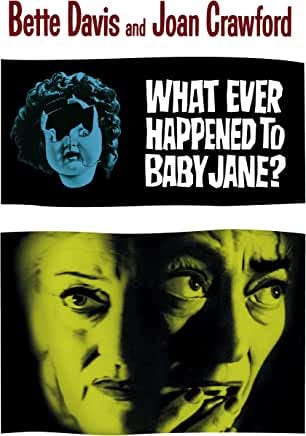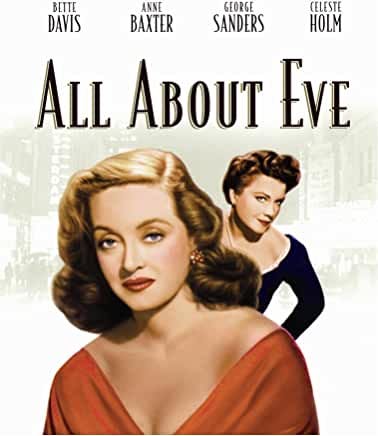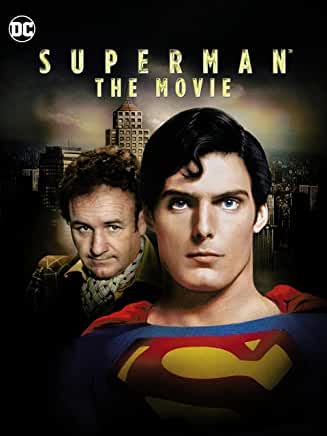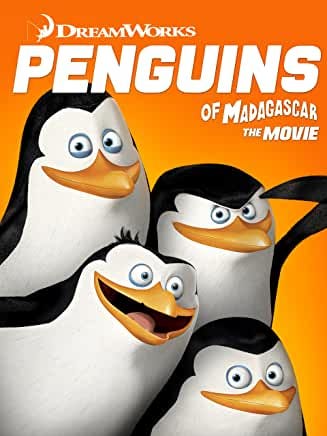Image by L.E. Wilson from RedBubble based on work by OpenClipart-Vectors and Kjrstie on Pixabay
All cruelty springs from weakness.
― Seneca
Compassion is a powerful emotion that motivates people to relieve the suffering of others. B.F. Skinner, famed psychologist known for behaviorism—which is an understanding of human behavior as simply the result of what is reinforced by the environment—made the following observation about it:
“There are five great classical examples of mistreatment: the care of old people, old folks homes; the care of small children who have been deserted by their parents, orphans and that sort of thing; prisoners; psychotics and retardeds. Now why have these always been classical examples of mistreatment? Not because compassionate people were not involved there, but there wasn’t—these people cannot counter-control. They can’t do anything against those who were working with them. Old people are too old, children are too small and too little, prisoners are there under armed control and they are—unless they manage to get some guns somewhere. Psychotics and retardeds are unable to escape from or counter-control. And under these conditions the most compassionate person deteriorates and becomes careless, then callous, and then cruel. This has happened again and again and again. Now, there’s no help for this in trying to find compassionate people. You put them in a system they’ll deteriorate and they’ll become less compassionate. What you want are the counter-controlling effects. You want to make sure the treatment of one kind is condoned. The treatment of another kind is opposed.”
— Token Economy: Behaviorism Applied (McGraw-Hill Films, 1972)
What Ever Happened to Baby Jane? (1962) is a drama directed by Robert Aldrich, based on the novel by Henry Farrell, about Baby Jane Hudson (Bette Davis), a former child-star who torments her disabled older sister, Blanche Hudson (Joan Crawford), out of jealousy and spite.
Life Lesson: Don’t let someone else have absolute power over you.
🍿Movie Scene Link (movie quote)
The key takeaway here is that a compassionate person can become “careless, then callous, and then cruel” if they are given absolute power over others. And haven’t we seen this before? It’s one of the main themes in “Movies That Are Frightening.” It’s also probably something you’ve personally experienced. Perhaps you’ve been at the receiving end of a mean and surly unionized government worker who can never really be fired from the job—that taxpayers are forced to fund—no matter how badly, inhumanely, disrespectfully, and lacking in dignity said workers treat those needing their assistance, for example, at the Department of Motor Vehicles, or at the Post Office, or at a Veterans Affairs hospital, or in a public school, and perhaps even, unfortunately, by the first responders to emergencies.
The stories of abuse of the elderly, of children, of prisoners, of the disabled, and even of animals—are endless, and as Skinner noted, happen “again and again and again.” The movie What Ever Happened to Baby Jane? (1962) masterfully dramatizes this kind of abuse by caretakers and gives voice to it, “You wouldn’t be able to do these awful things to me if I weren’t still in this [wheel]chair,” says Blanche Hudson (Joan Crawford) to her sister Jane (Bette Davis), who responds “But you are, Blanche. You are in that chair!” However, there is a way to protect the vulnerable, to protect ourselves, to protect our loved ones—and these horrible, sad stories hint at it: we need accountability, transparency, and consequences for the mistreatment of others, or in B.F. Skinner’s words, we need “counter-controls.”
But these are structural requirements that have to be implemented at the system/company/government level. So how do we protect ourselves and our loved ones when these measures have not been implemented or are ignored? The answer, according to my reading of Skinner, is to push back. Healthy adults are not generally the victims of these types of abuse because a healthy person asks for help, finds allies and resources, learns ways to bypass trouble, and is confident enough to ask to see the manager, the boss, the person who is ultimately responsible in order to file a complaint, a grievance, a lawsuit etc. In other words, a healthy person knows that we all deserve to be treated with dignity and respect—and fights to maintain them.
But if you don’t know how to do this, or can’t quite envision yourself doing it, here are a few brilliant movies with characters who stand up for themselves and/or for others. Your mileage may vary, but the real point of these films is to to empower you, to show you that you can fight back too, and to encourage you to see it as your duty to make a stink because it may help those who are more vulnerable and can’t speak for themselves. And, most importantly, it may be the only way to stop abuse, which means that it may be the most compassionate thing you can do.
All About Eve (1950) is a drama written and directed by Joseph L. Mankiewicz about the maneuverings of a young aspiring actress, Eve Harrington (Anne Baxter), to get close to an established stage actress, Margo Channing (Bette Davis), and her circle of powerful friends that includes director Bill Simpson (Gary Merrill), playwright Lloyd Richards (Hugh Marlowe) and his wife Karen (Celeste Holm).
Life Lesson: Sometimes showing a flash of anger can protect you from further harm.
🍿Movie Scene Link (movie quote)
Robin Hood (1973) is an animated fantasy directed by Wolfgang Reitherman, based on the English folklore legend, about Robin Hood (Brian Bedford), a fox who steals from the rich ruling class to give money back to the poor, heavily taxed, working class.
Life Lesson: “Taxation is theft.” —Murray Rothbard
🍿Movie Scene Link (movie quote)
Superman (1978) is a fantasy directed by Richard Donner, based on the comic book by Jerry Siegel and Joe Shuster, about the Man of Steel (Christopher Reeve), a superhero from the planet Krypton who tries to help humanity by fighting criminals like Lex Luthor (Gene Hackman), while hiding his identity.
Life Lesson: “Integrity is your destiny; it is the light that guides your way.” — Plato
🍿Movie Scene Link (movie quote)
Punch-Drunk Love (2002) is a romantic drama written and directed by Paul Thomas Anderson about Barry Egan (Adam Sandler), a man who grew-up being bullied by his sisters and is still tormented by them as an adult until a series of events, that includes falling in love, leads him to stand up for himself like never before.
Life Lesson: Everyone needs someone to love who will love them back.
🍿Movie Scene Link (movie quote)
Penguins of Madagascar (2014) is an animated fantasy co-written and co-directed by Eric Darnell and Simon J. Smith about the heroic adventures of four penguins – Skipper (Tom McGrath), Kowalski (Chris Miller), Rico (Conrad Vernon) and Private (Christopher Knights) – as they battle Dave (John Malkovich), an enraged octopus.
Life Lesson: Be courageous when others need help.
🍿Movie Scene Link (movie quote)
It takes courage to push back. It’s a risk to fight back. But as TV therapist Dr. Phil famously said,
We teach people how to treat us.
You shape others' behavior when you teach them what they can get away with and what they cannot.
Figure out what you are doing to reinforce, elicit or allow that treatment.
The resolve to be treated with dignity and respect must be uncompromising.
Also, if you want to be a compassionate person, or remain a compassionate person, don’t take any jobs where there isn’t enough accountability, where transparency is lacking, and where there aren’t clear and immediate consequences for the mistreatment of others. Let a responsible party know about any instances where someone is not treated with the utmost dignity and respect—anonymously as a whistleblower if you have to—and leave. Transforming into a person who becomes careless, then callous, and then cruel is not worth a paycheck. This behavior will seep into everyday interactions, even with your loved ones. It’s poison.
There are other jobs where you can increase your level of compassion, and these usually are ones where you deal with people as individuals rather than as nameless numbers. This is because humans, in general, feel more compassion for one individual than they do for a group of many people, since this can quickly become overwhelming and stressful. Hence, it’s necessary to avoid overcrowded situations. In fact, learn to be fierce and ask that the numbers of people being put into groups be reduced. Let someone who has to take responsibility know, and if there is responsiveness then stay so that you can be the countermeasure for those who can’t defend themselves.
This is being a hero. This is what Superman—“here to fight for truth and justice, and the American way”—taught us. And this is another way in which we can increase kindness and peace in the world.
Nothing strengthens authority so much as silence.
Visit the moviewise catalogue—a searchable database of one sentence movie summaries, movie quotes, and movie wisdom—for movie recommendations.
Also visit the moviewise store. Get a t-shirt, bag, or pillow with your favorite #LifeLesson from a movie. Reply to this or leave a comment below to make a request.













"The American Way of life is individualistic, dynamic, and pragmatic. It affirms the supreme value and dignity of the individual; it stresses incessant activity on his part, for he is never to rest but is always to be striving to "get ahead"; it defines an ethic of self-reliance, merit, and character, and judges by achievement: "deeds, not creeds" are what count. The "American Way of Life" is humanitarian, "forward-looking", optimistic. Americans are easily the most generous and philanthropic people in the world, in terms of their ready and unstinting response to suffering anywhere on the globe. The American believes in progress, in self-improvement, and quite fanatically in education. But above all, the American is idealistic. Americans cannot go on making money or achieving worldly success simply on its own merits; such "materialistic" things must, in the American mind, be justified in "higher" terms, in terms of "service" or "stewardship" or "general welfare"... And because they are so idealistic, Americans tend to be moralistic; they are inclined to see all issues as plain and simple, black and white, issues of morality."
— William Herberg
https://en.wikipedia.org/wiki/American_way
Great post! I truly believe that many of the world’s issues could be solved if more people were compassionate towards others.